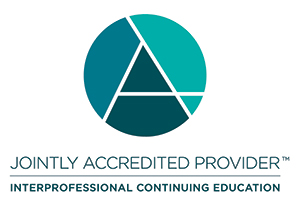Please note: AABB reserves the right to make updates to this program.
Live Program Date: Wednesday, January 28, 2026 - On-Demand Available
Program Number: 26EL-604
Director/Moderator: Elizabeth Crowe, MD, PhD, Assistant Professor of Pathology, Blood Bank Medical Director, Johns Hopkins University School of Medicine, Baltimore, MD
Speaker: Nabiha Huq Saifee, MD, PhD, Transfusion Service Medical Director and Associate Medical Director, Apheresis, Seattle Children's Hospital; Associate Professor, Department of Laboratory Medicine and Pathology, University of Washington, Seattle, WA
Pediatric transfusion medicine presents distinct challenges that differ from adult practice. Neonates and children undergo dynamic developmental changes in their physiology and hemostatic systems that can vary significantly based on age and clinical condition. These developmental differences necessitate specialized knowledge and careful consideration of transfusion-related risks and requirements to ensure safe and effective therapy across the healthcare team. Adverse events may be underrecognized in pediatric patients, and certain complications, such as hyperkalemia, patient identification errors, or excessive or over-rapid transfusion, occur more frequently in young children. Despite growing pediatric-specific evidence, transfusion practices in neonatal and pediatric patients remain highly variable across institutions.
Through case-based clinical vignettes interwoven into a lecture format, this program will cover the clinical indications for transfusion of major blood components, review current evidence from key clinical trials informing transfusion threshold guidelines, and examine the spectrum and management of transfusion-related adverse events in neonatal and pediatric patients. Cases are designed to highlight the complementary roles and shared decision-making responsibilities of physicians, laboratory professionals, nurses, and other members of the transfusion team. The program will also introduce the concept of individualized transfusion decisions using non-invasive monitoring tools as an adjunct to hemoglobin levels. By bridging the gap between limited pediatric-specific evidence and clinical practice, this program aims to help participants identify strategies and apply emerging data to optimize transfusion practices in neonatal and pediatric patient care.
After participating in this educational activity, participants should be able to:
Please note: registration for the live eCast is now closed. Registration is available for the on-demand eCast. If you registered for the live eCast you do not need to register for the on-demand eCast (access to the on-demand eCast was included with the live eCast registration).
| Single Viewer | Register |
| Group Viewing | Register |
This activity is eligible for one (1) continuing education credit/contact hour for Physicians, California Nurses, California Lab Personnel, Florida Lab Personnel and General Participation credit. AABB reserves the right to reduce or increase the number of credits granted based on the final activity duration. For more information on each credit type please visit our Continuing Education Credits webpage.
There is no financial support for this activity.

In support of improving patient care, this activity has been planned and implemented by the Association for the Advancement of Blood & Biotherapies (AABB), which is jointly accredited by the Accreditation Council for Continuing Medical Education (ACCME), the Accreditation Council for Pharmacy Education (ACPE), and the American Nurses Credentialing Center (ANCC), to provide continuing education for the healthcare team.
Physicians (ACCME): AABB designates this live activity for a maximum of one (1) AMA PRA Category 1 CreditTM. AABB designates this enduring activity for a maximum of one (1) AMA PRA Category 1 CreditTM. Physicians should claim only the credit commensurate with the extent of their participation in the activity.
Claiming Credit
Live Activity - Upon completion of the live activity, you will receive instructions to complete your evaluation, which is necessary to claim credit and receive your certificate of attendance/completion (credit must be claimed by the date provided in the instructions). The evaluation can be found by logging into the AABB Education Platform.
Enduring Activity - Once the enduring (on-demand) program is available, you will receive instructions to access the AABB Education Platform. Upon completion of viewing the enduring activity, you will need to complete the evaluation, which is necessary to claim credit and receive your certificate of completion (credit must be claimed by the date provided in the AABB Education Platform).
Program & Credit Expiration Dates:
Disclosure Declaration
It is the policy of the Association for the Advancement of Blood & Biotherapies to ensure independence, balance, objectivity, and scientific rigor and integrity in all of its CE activities. Faculty must disclose to the participants any relationships with commercial companies whose primary business is producing, marketing, selling, re-selling, or distributing healthcare products used by or on patients. AABB has evaluated, identified, and mitigated any potential conflicts of interest through a rigorous content validation procedure, use of evidence-based data/research, and a multidisciplinary peer review process. The following information is for participant information only. It is not assumed that the presence of such relationships will have a negative impact on the presentations.
Disclosures for the planners of this event can be found here. Disclosures for the program faculty, peer reviewers, and AABB personnel are provided at the beginning of the program.
 Dr. Elizabeth (Liz) Crowe is an Assistant Professor in the Department of Pathology at the Johns Hopkins University School of Medicine. She is also the Medical Director of the blood bank and the Specialist in Blood Bank Technology/Transfusion Medicine (SBBT/TM) at the Johns Hopkins Hospital. Her areas of interest include transfusion medicine education, patient blood management, and immunohematology.
Dr. Elizabeth (Liz) Crowe is an Assistant Professor in the Department of Pathology at the Johns Hopkins University School of Medicine. She is also the Medical Director of the blood bank and the Specialist in Blood Bank Technology/Transfusion Medicine (SBBT/TM) at the Johns Hopkins Hospital. Her areas of interest include transfusion medicine education, patient blood management, and immunohematology.
 Dr. Nabiha Huq Saifee is the Transfusion Service Medical Director at Seattle Children's Hospital and an Associate Professor in the Department of Laboratory Medicine and Pathology at the University of Washington. She earned her Bachelor of Science in Chemistry from Vanderbilt University, followed by her MD and PhD degrees, clinical pathology residency, and Transfusion Medicine/Blood Banking fellowship at the University of Washington and Bloodworks Northwest. Since 2017, Dr. Saifee has led the transfusion service at Seattle Children's, where she integrates her expertise in pediatric transfusion medicine and coagulation with real-world experience to drive quality improvement initiatives. Dr. Saifee's scholarly work includes over 40 journal articles and four book chapters.
Dr. Nabiha Huq Saifee is the Transfusion Service Medical Director at Seattle Children's Hospital and an Associate Professor in the Department of Laboratory Medicine and Pathology at the University of Washington. She earned her Bachelor of Science in Chemistry from Vanderbilt University, followed by her MD and PhD degrees, clinical pathology residency, and Transfusion Medicine/Blood Banking fellowship at the University of Washington and Bloodworks Northwest. Since 2017, Dr. Saifee has led the transfusion service at Seattle Children's, where she integrates her expertise in pediatric transfusion medicine and coagulation with real-world experience to drive quality improvement initiatives. Dr. Saifee's scholarly work includes over 40 journal articles and four book chapters.